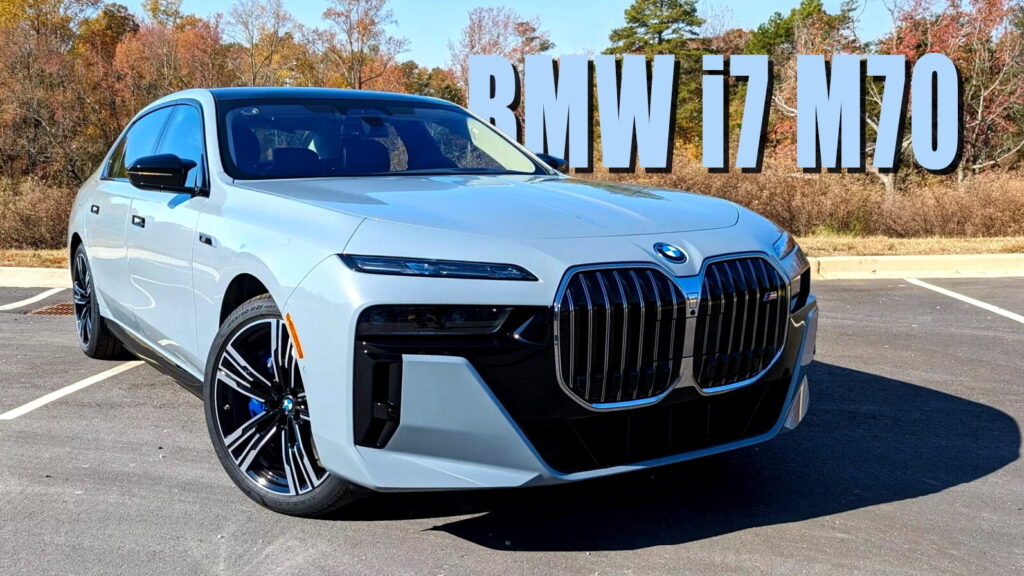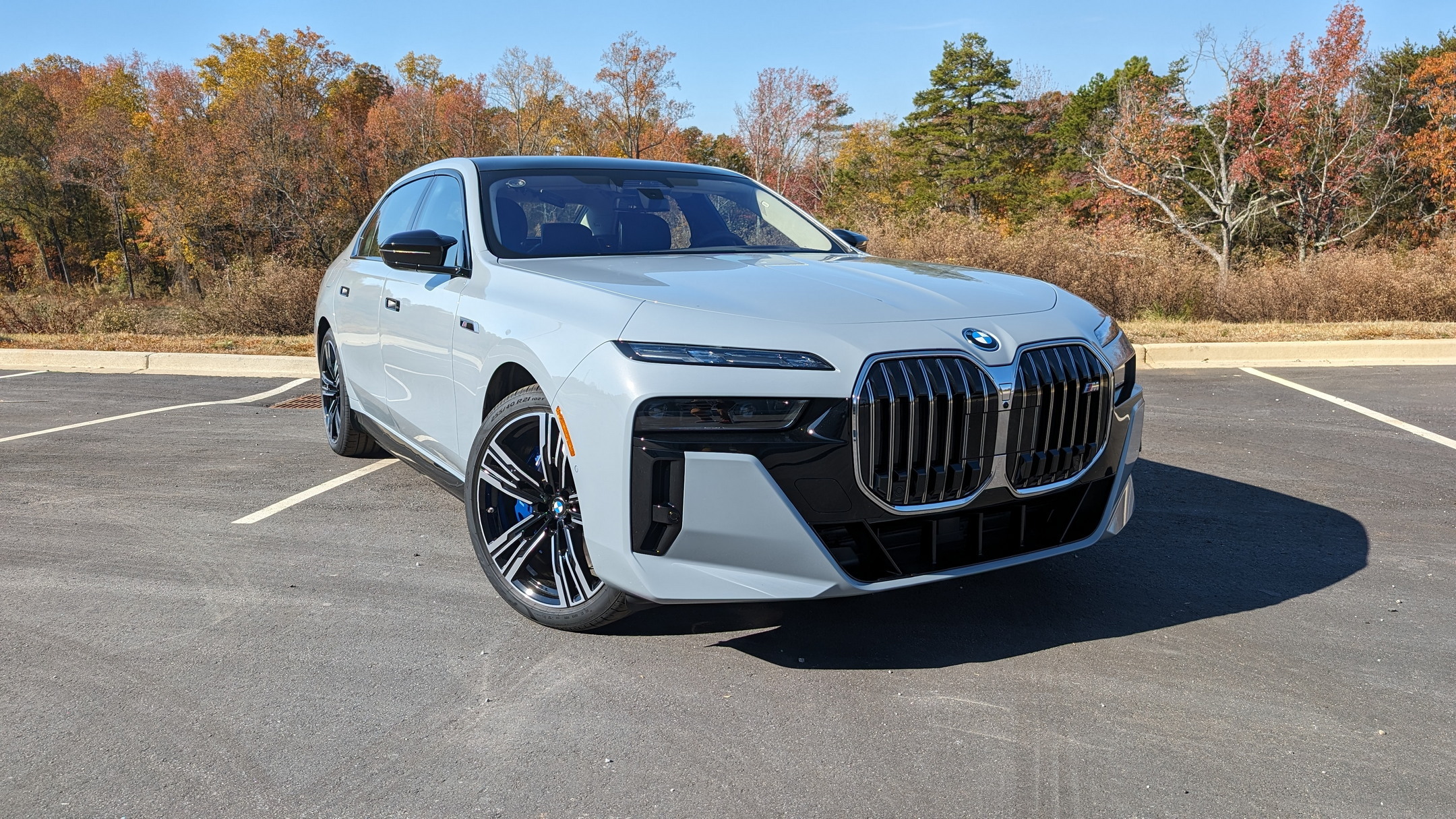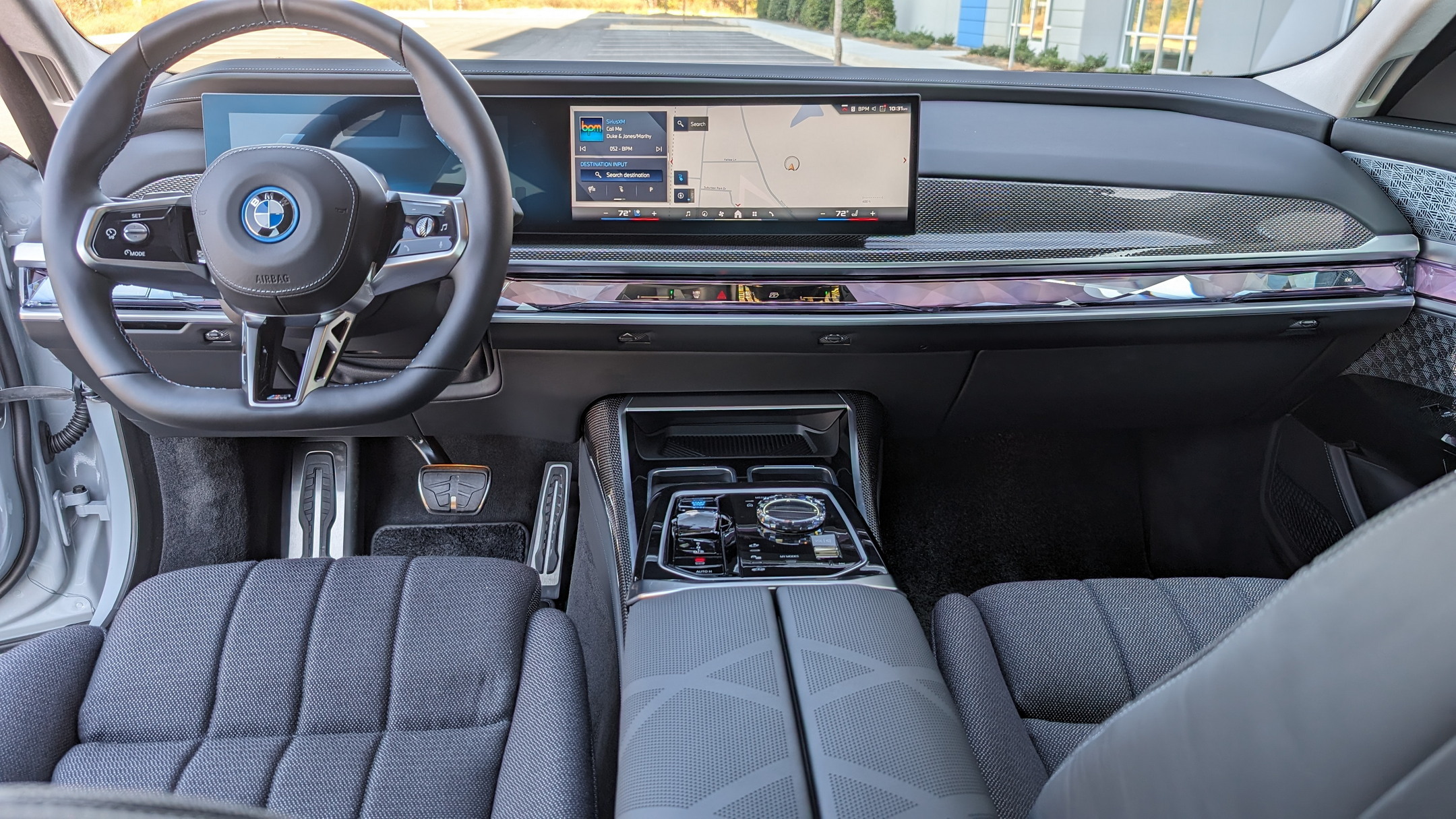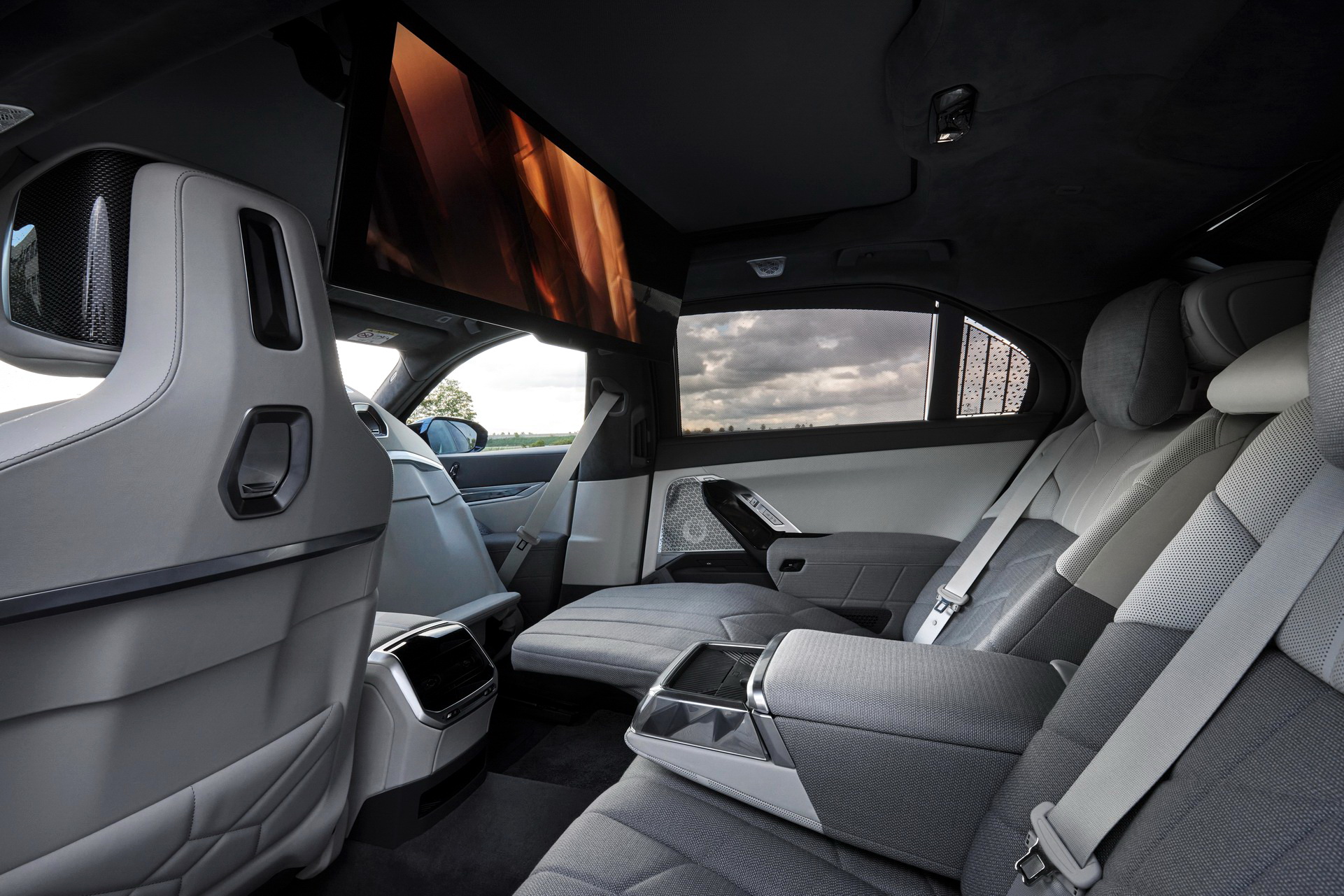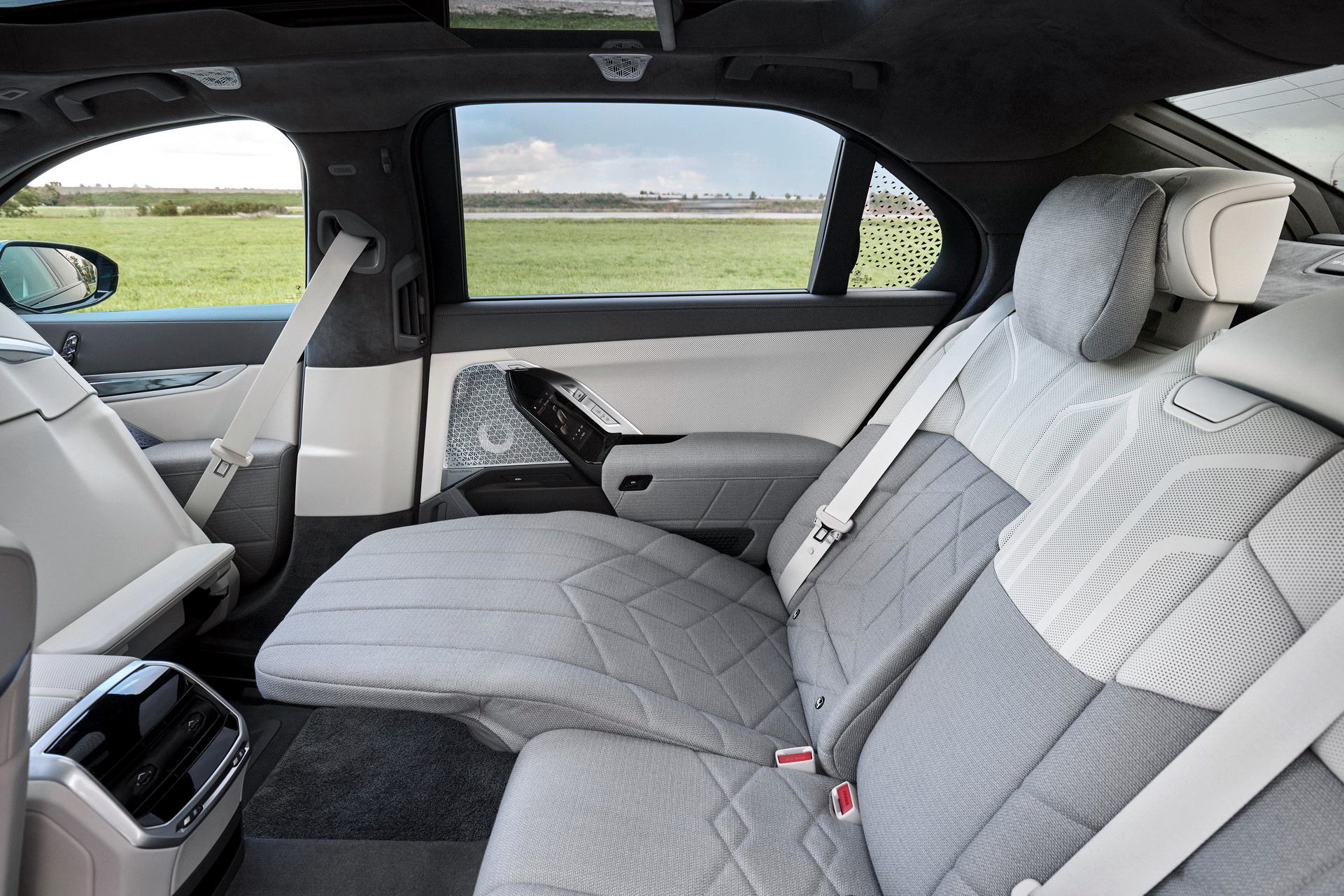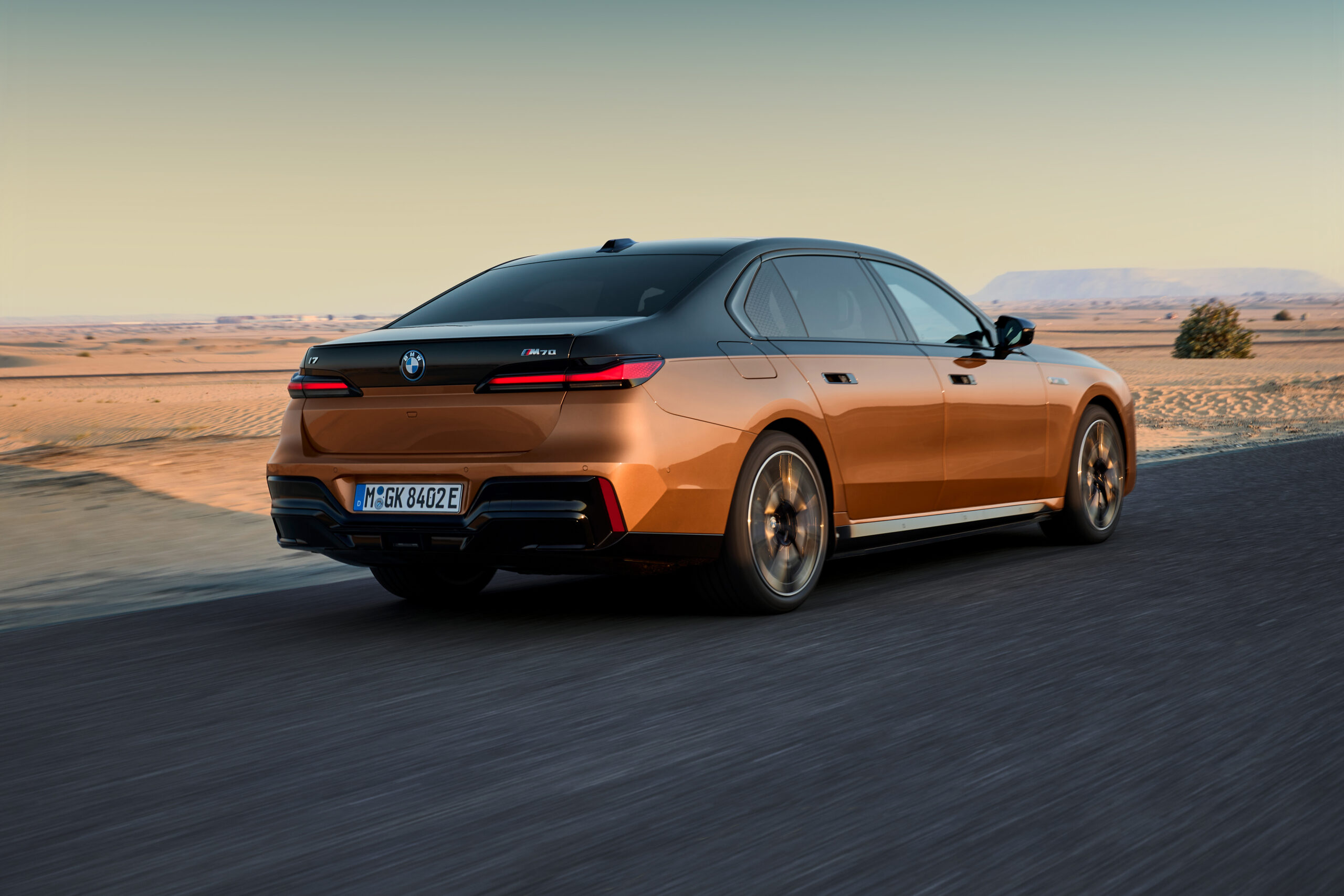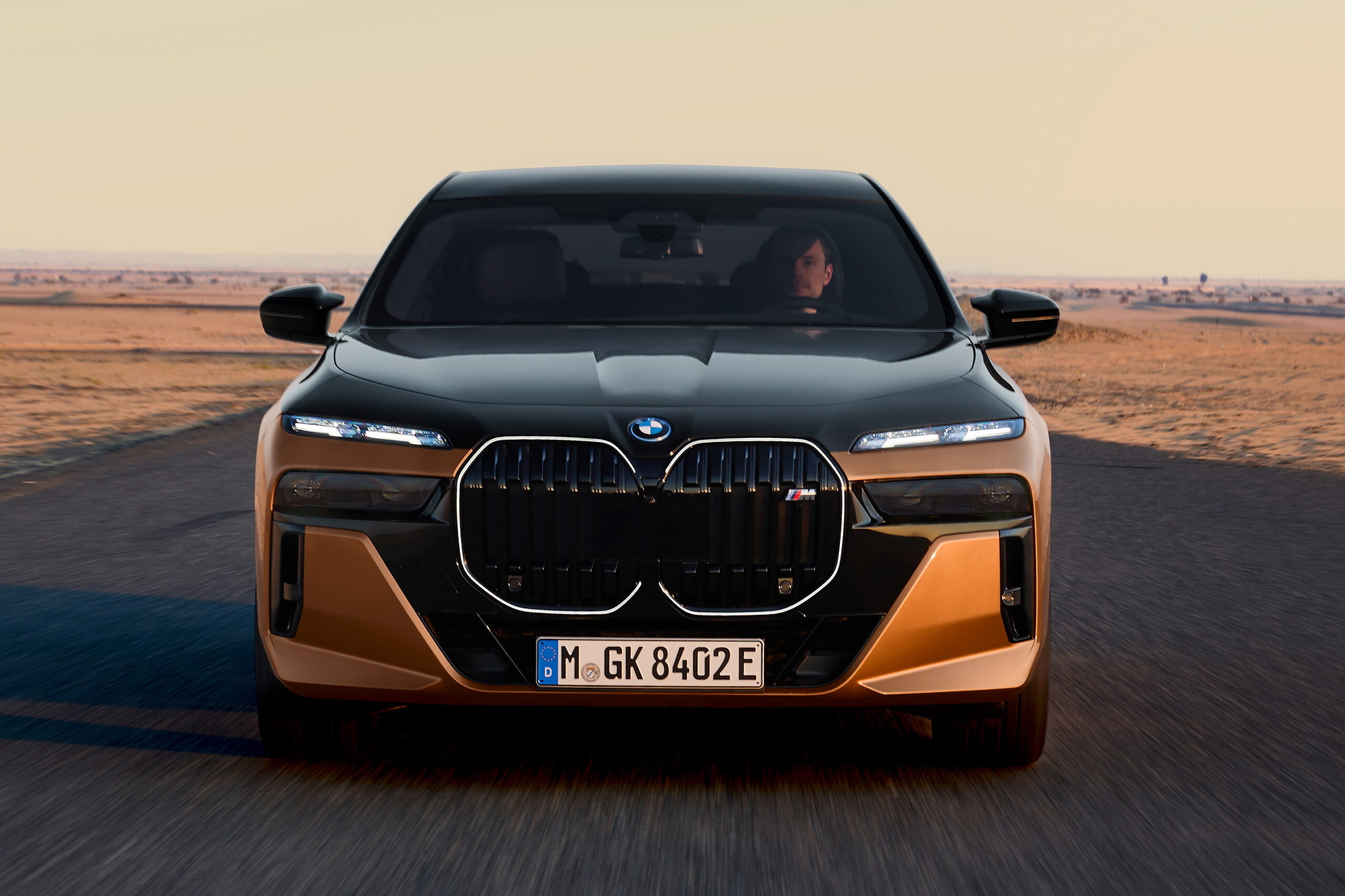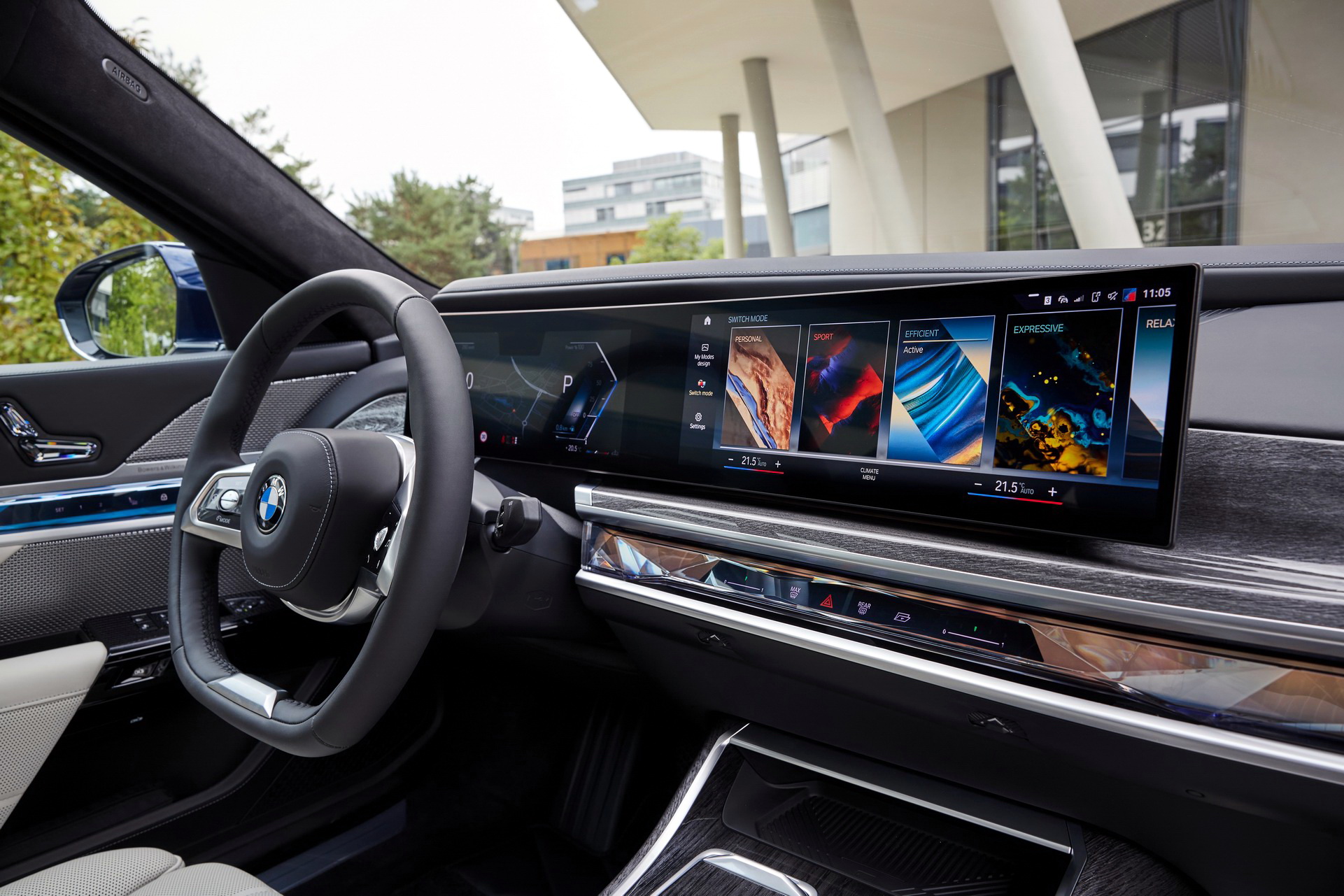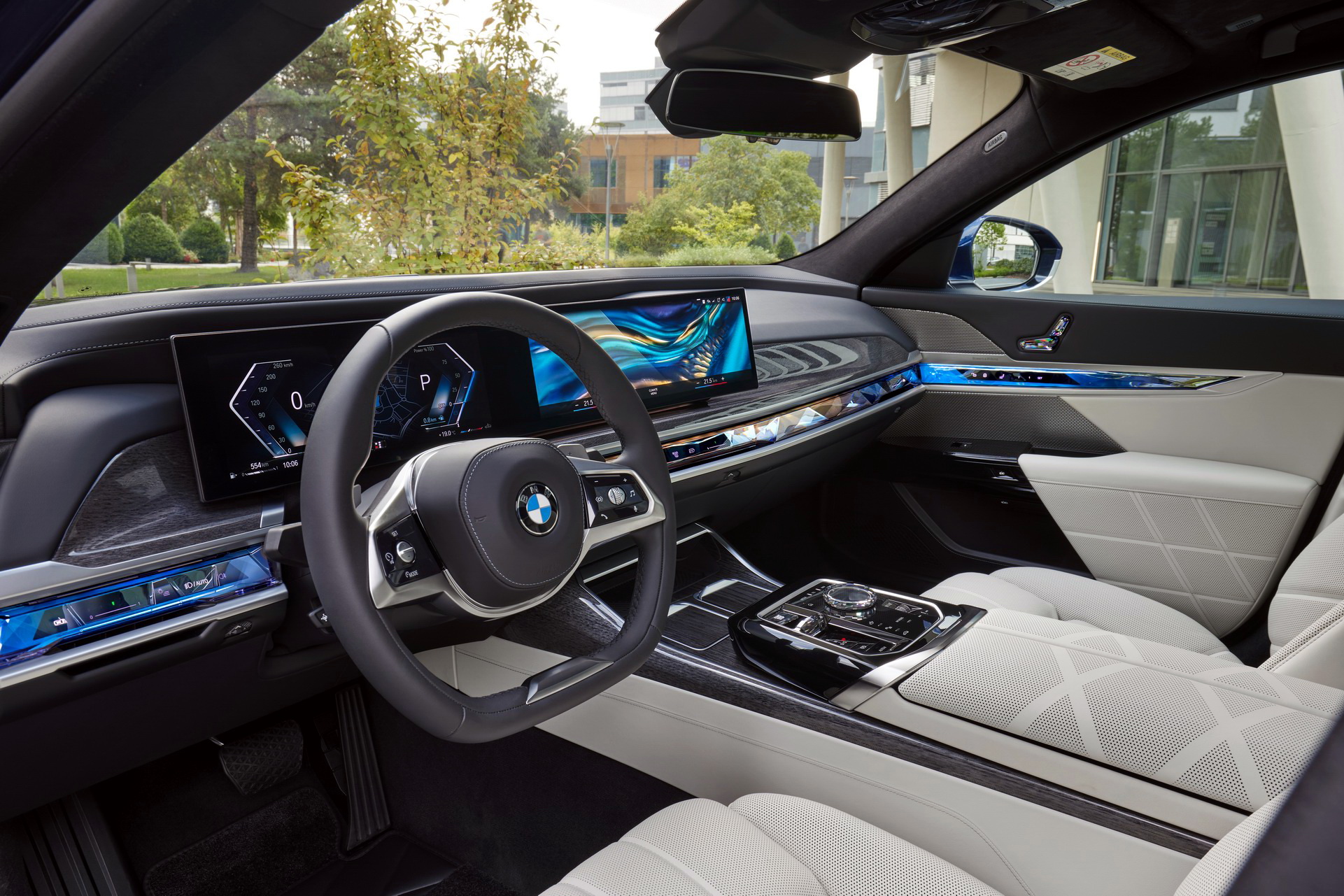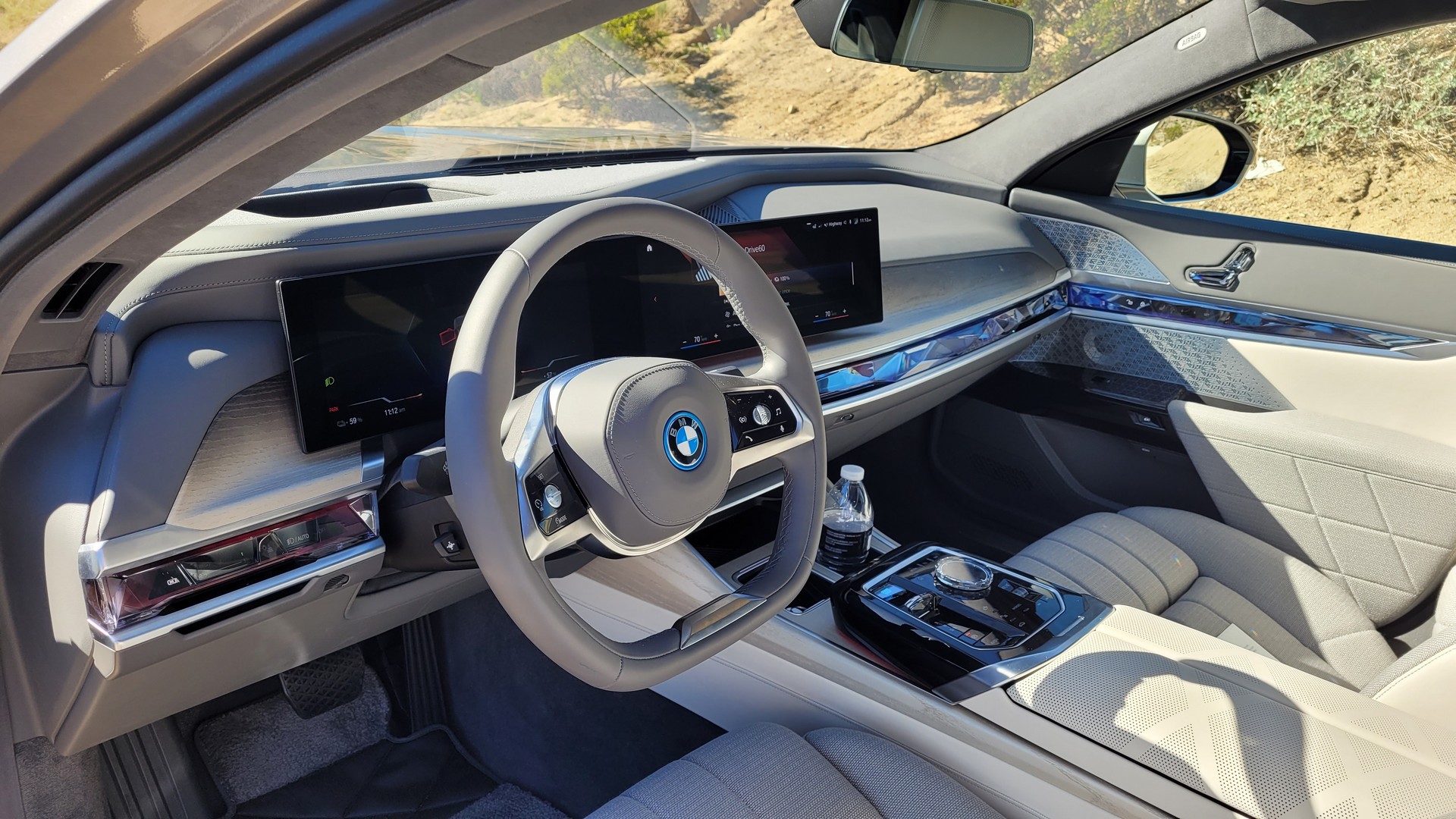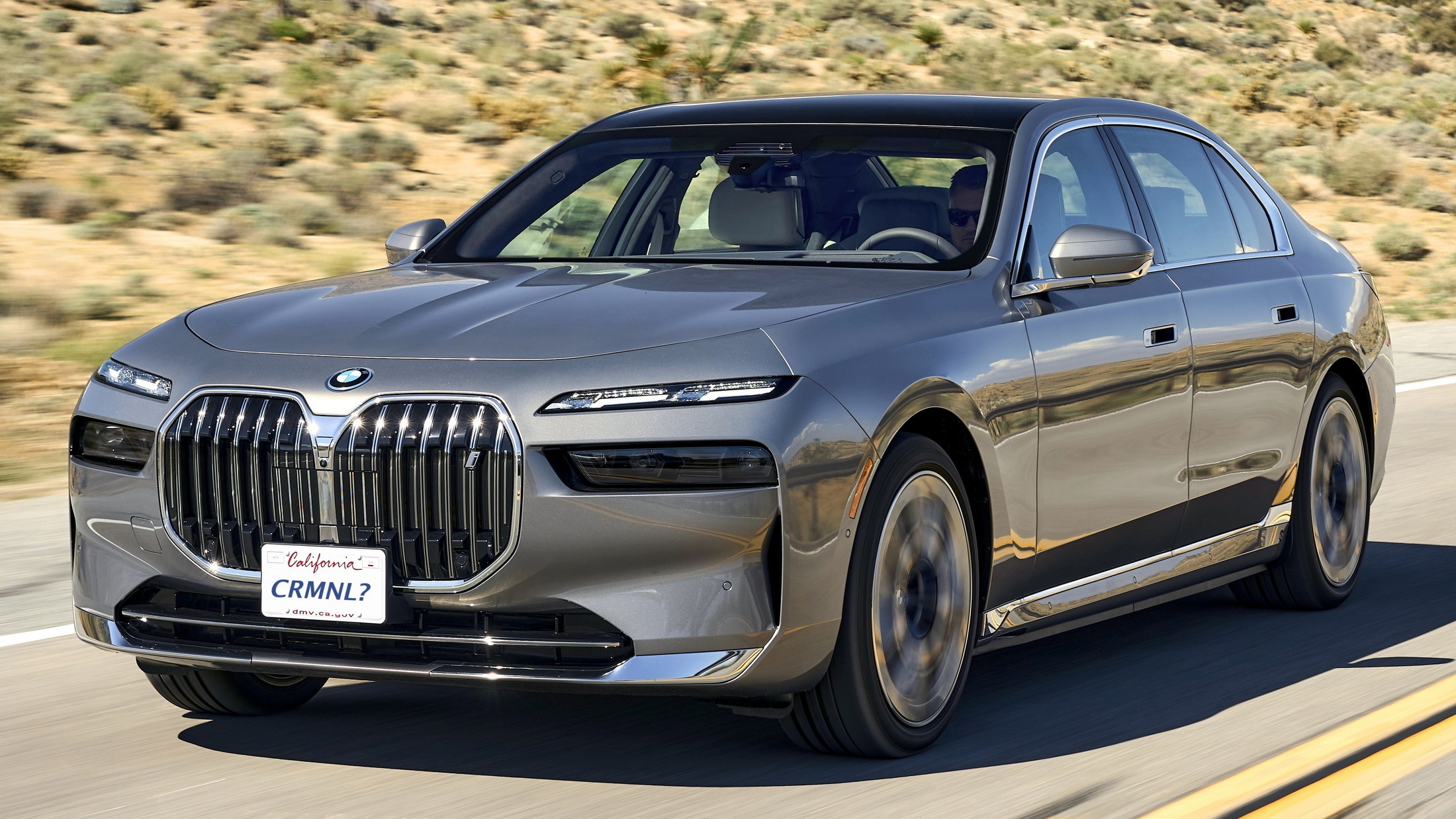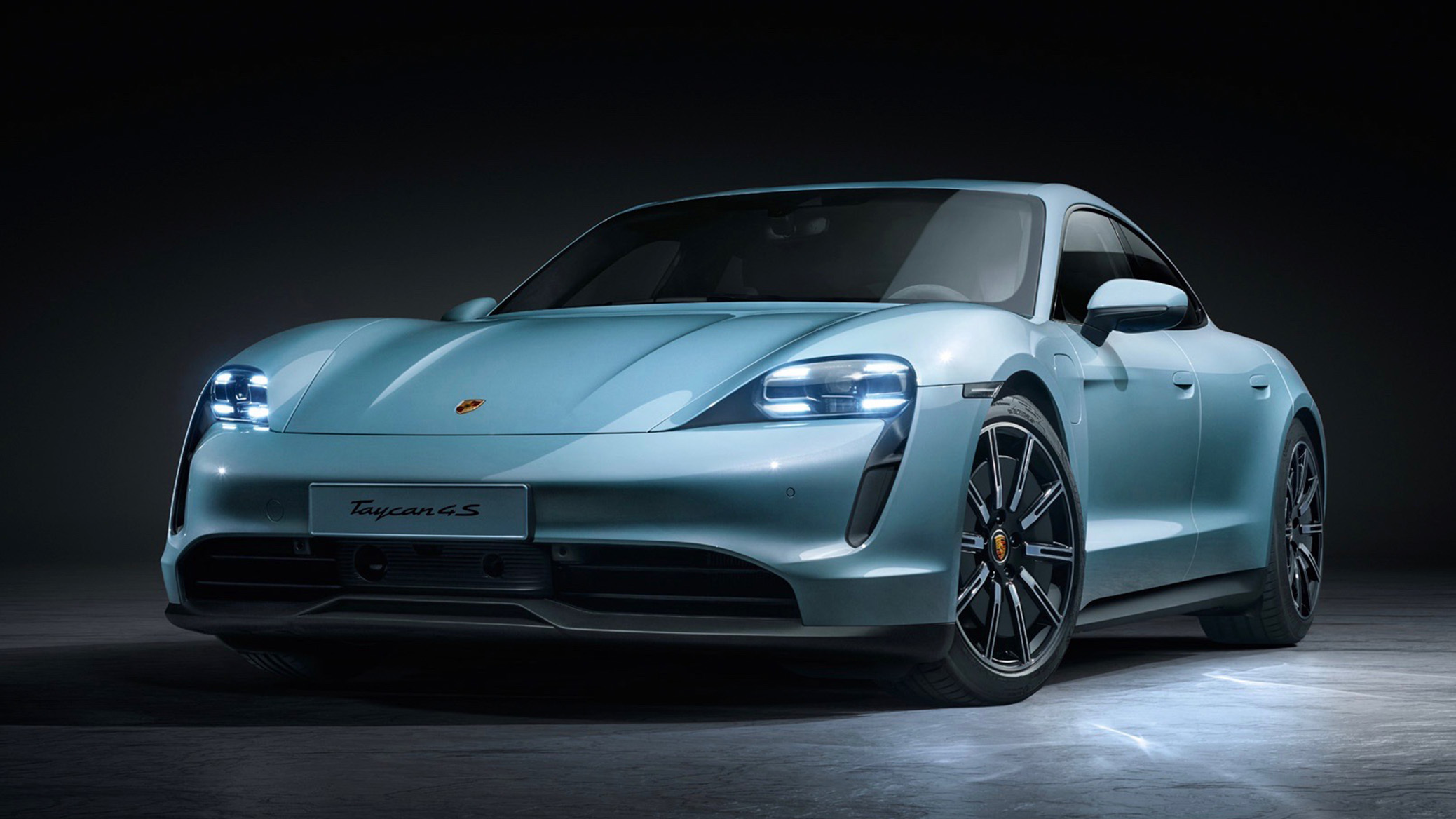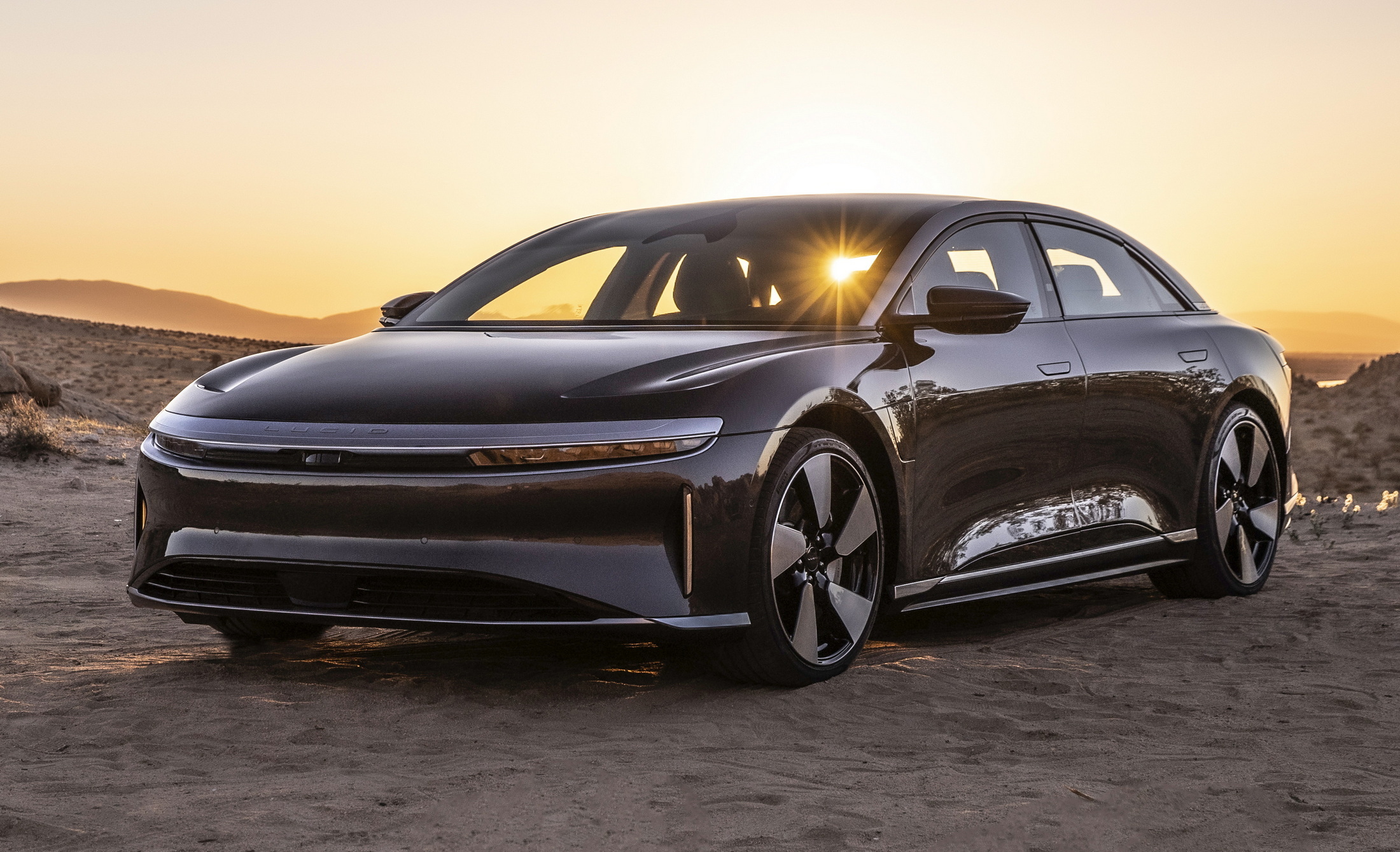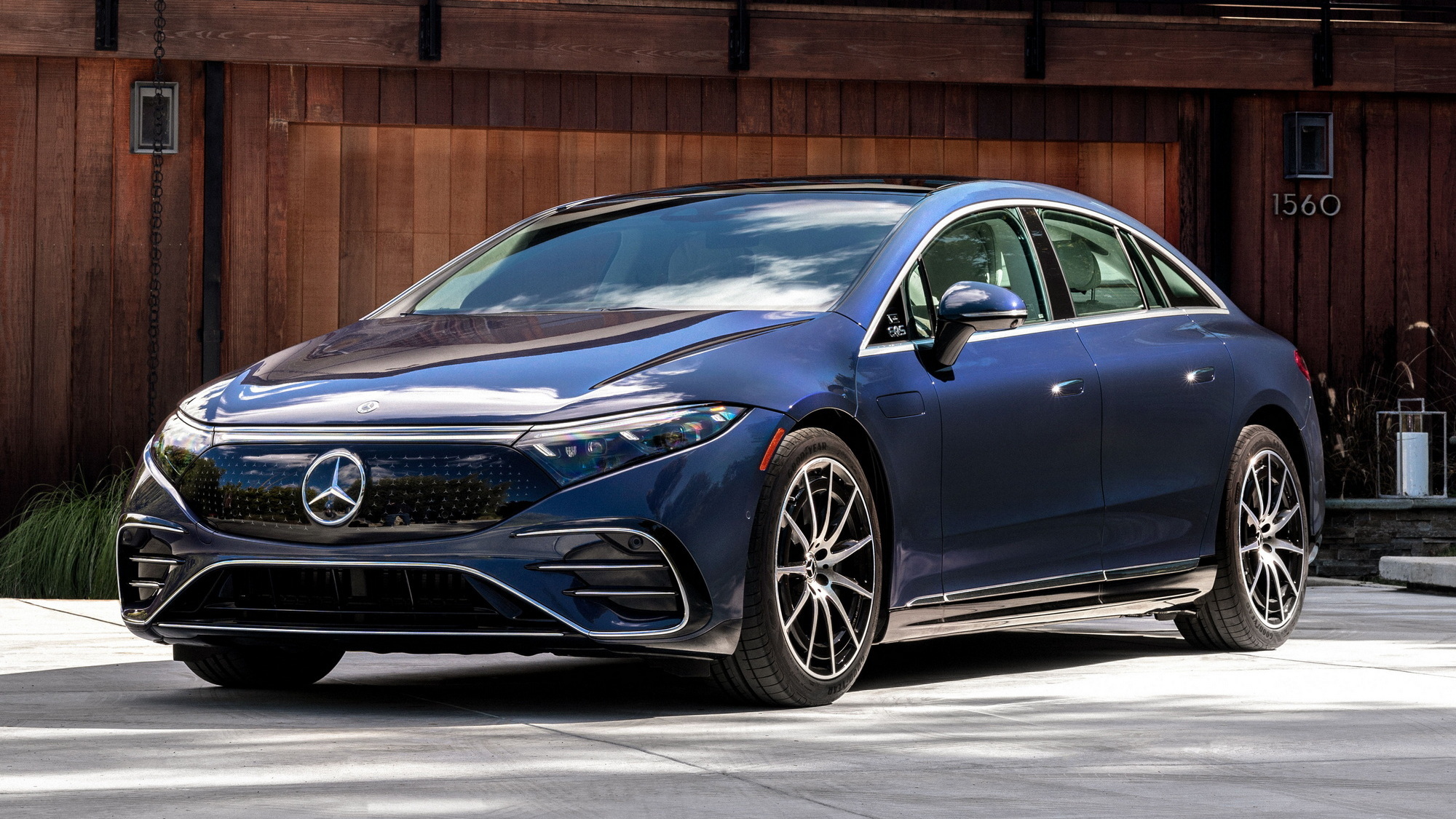BMW’s design team has caught a lot of flack in recent years and the 7-Series is no outlier. In fact, it’s maybe the boldest design choice in the lineup. Sure, the XM, M2, and other models might not be as pretty or classically styled as some desire but those aren’t the 7-Series.
This sedan has long been BMW’s flagship. Giving it looks that appear to split opinion intentionally is a marked departure from previous generations.
It’s the rival to other titans in the segment and to conquer even more ground, it’s gone all-electric. The associated battery and electric motors bring two additional players to the 7-Series, namely instant torque and a bunch of weight.
Quick Facts
Over a few days, we had our chance to see if all of these new facets of the 7-Series design would add to or detract from the model’s illustrious history. Our test car was the i7 M70, the latest and greatest version of the model. We found that even hideous book covers can still contain revelations in the form of automotive design.
Underpinning The Flagship
BMW sells the i7 in three distinct trims starting out with the eDrive50, a rear-wheel drive version with 449 hp (334 kW). Next is the xDrive60, an all-wheel drive variant with an electric motor for each axle with a combined output of 536 hp (399 kW). According to the EPA, the eDrive50 gets up to 321 miles of range while the xDrive60 can go up to 318 miles on a single charge.
Both versions benefit from a double-wishbone suspension at the front and a five-link suspension setup in the rear. Every 7-Series, including the gas-powered versions, gets adaptive air suspension with automatic self-leveling too. In Sport mode, the adaptive system drops the car nearly half an inch.
On the other side of the coin, the suspension can raise the car by nearly an inch for more clearance and comfort on rough roads. The xDrive models get something BMW calls Integral Active Steering which sharpens response and allows the rear wheels to turn (up to 3.5 degrees) either in or out of phase with the front wheels based on conditions.
All of this is to say that at least under the skin, BMW appears to have pulled out all of the stops regarding the new i7. That’s even more the case with the i7 M70 xDrive. It develops 650 hp (484 kW) and up to 811 lb-ft (1,098 Nm) of torque. To reach that twist figure though one will need to activate the “Boost” paddle near the steering wheel or use launch control, otherwise the M70 xDrive makes only 748 lb-ft (1,013 Nm) of torque.
In fact, the automaker is quick to point out that the motor on the rear axle of the M70 is the most powerful it’s ever put into a production car. It’s not the only special bit of this particular 7-Series though. The air springs and dampers are uniquely tuned to make this top trim level just that much sharper in the bends. High-performance tires are even optional, another first, on the M70.
BMW says the M70 xDrive will get up to 295 miles of range on a single charge and that it can go from 10% to 80% state of charge in just 34 minutes on a DC fast charging station.
The Lap of Luxury
The i7 M70 xDrive doesn’t just have to get the underpinnings right though. This flagship trim still has to provide flagship comfort and luxury. We’re happy to say that it does exactly that. The seats are ergonomically outstanding with tons of adjustments, heating and ventilation, excellent lateral bolster support, and a massaging function too.
The dash and center control stack are a delightful mix of old-school BMW styling cues with new-school technology. The expansive 12.3-inch digital gauge cluster mated to a 14.9-inch infotainment system looks great and mostly works well. If there’s anything we’d gripe about it’s the lack of physical control switches for the quad-zone climate control functions. Beyond that, the iDrive 8.5 system is snappy, easy to use, and mostly intuitive.
Picking one’s favorite seat in the i7 M70 xDrive might be tough because while the driver is enjoying the dynamics of this sedan, the rear passengers get their own bespoke experience. Resting above their heads is a huge 31.3-inch 8k touchscreen that slides down and into view at the push of a button.
That button just so happens to be on either of two portrait-oriented screens that rest on either rear door card. The screen won’t work though if either of the front seats is set back so far that the two might come into contact. For me, a six-foot-six guy, that means my rear-seat passengers would have to ask me to slide forward if they wanted to watch the big screen.
Nevertheless, the system comes fully loaded with Amazon, YouTube, Netflix, and more. This car isn’t only about flashy visuals either as it also comes with a 36-speaker sound system from Bowers & Wilkins. That’s right, this sedan probably has more speakers in it than you do in your whole house. Rear seat passengers can even connect to the rear display with Bluetooth headphones should they want to enjoy their entertainment in privacy.
On top of that, the rear passenger-side seat actually reclines and incorporates a calf-rest. Both rear seats also have a massaging function but the cool tech features don’t stop there. All four doors open and close at the push of a button. In fact, owners can configure a button on the keyfob to automatically open whichever doors they prefer as they approach.
Generally, this is one of the most luxurious cars in the segment and possibly the most advanced at this price. It’s somewhat practical too. The trunk features 17.7 cubic feet worth of cargo space. From comfort to quality to sensibility, the i7 M70 xDrive hits all of the high notes, which it should for $194,000 as tested.
A Lightning-Fast Limo
The i7 M70 xDrive feels like a car that defies physics but in truth, it’s leveraging clever technology to accomplish that task. This super sedan weighs somewhere right around 6,000 pounds (2,721 kg) but the only place you feel that heft is during hard braking. Don’t get me wrong, it’s clear from the driver’s seat that this isn’t a light car but it also doesn’t feel like it weighs more than a GMC Sierra 1500 (which it does).
The flat-bottomed steering wheel feels fantastic and the feedback it provides is intuitive and clear. The i7 M70 changes direction willingly without body roll or any other type of drama. Mash the go pedal and the Hans Zimmer-composed “IconicSounds Electric” provide a futuristic touch that some will love, some will hate, and others will turn off the first time they hear it. What they won’t do is get tired of how rapidly this car accelerates. BMW says it’ll do 0-60 mph (0-96 km/h) in just 3.5 seconds.
While we didn’t get a chance to properly test that on a track we don’t doubt that figure. In addition, the active M-tuned suspension does an excellent job of keeping this heavy beast balanced in curves. The rear axle steering makes the whole car feel more nimble than it has any right being.
On top of all of that, the braking system might be the best we’ve tested on a sedan of this size and power. While other EVs tend to struggle with hard braking events, the i7 M70 felt solid, stable, and easy to direct.
Of course, at the same time that all of this is possible, the i7 M70 is really more of a luxury limousine than it is a track monster. As we noted in our original test of the lesser i7 xDrive60, it’s incredibly competent there too but did the sporty nature of the M70 ruin it? In a word, no.
I actually had the chance to drive the new Rolls Royce Spectre back to back with the i7 M70 xDrive. The two aren’t all that different in terms of ride comfort. BMW might not love hearing that but they should take it as a supreme compliment. The Rolls is better to ride in, the BMW is better to drive, as it should be.
Competition At The Country Club
Potential buyers of the i7 M70 xDrive are those who look for the best of both worlds, namely, top-end performance and top-end luxury. It delivers on both accounts but it’s not alone if those are the only two qualities a buyer is searching for.
The Porsche Taycan and Lucid Air are both in this conversation but each has a major drawback compared to the BMW. The Taycan isn’t nearly as comfortable or luxurious in the back seat. The Air also isn’t as posh but it also doesn’t have the same brand recognition as BMW.
Tesla and Mercedes both have similar foibles. The Model S certainly can’t match the i7 when it comes to luxury. The EQS does but I’d argue that it somehow looks worse than the i7 and doesn’t offer the same sharp driving dynamics. Ultimately, luxury sedan buyers now have one more flagship option that deserves serious consideration.



